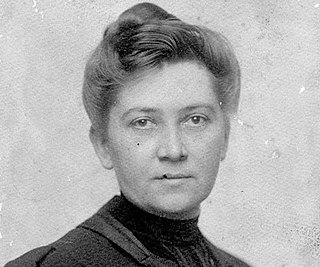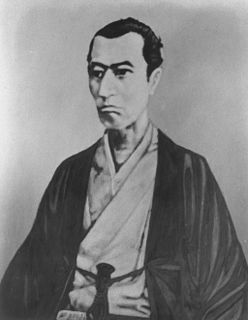A Quote by Corra May Harris
I have long suspected that the power of speech is not a power at all, but a mere form of hysteria from which the living that really know the truth never suffer because they do not fear life or death as we do and can afford to be calm and silent. The frailest flower that blooms knows that it will rise from the dead in the next season's sun, breathe, feel again the dew and rain. Therefore these little ones make no such tragedy as we do of death.
Related Quotes
But how to know the falsity of death? How can we know there is no death? Until we know that, our fear of death will not go either. Until we know the falsity of death, our lives will remain false. As long as there is fear of death, there cannot be authentic life. As long as we tremble with the fear of death, we cannot summon the capacity to live our lives. One can live only when the shadow of death has disappeared forever. How can a frightened and trembling mind live? And when death seems to be approaching every second, how is it possible to live? How can we live?
Buddhas have a strength which is not of this world. Their strength is totally of love... Like a rose flower or a dewdrop. Their strength is very fragile, vulnerable. Their strength is the strength of life not of death. Their power is not of that which kills; their power is of that which creates. Their power is not of violence, aggression; their power is that of compassion.
If a general and his men fear death and are apprehensive over possible defeat, then they will unavoidably suffer defeat and death. But if they make up their minds, from the general down to the last footsoldier, not to think of living but only of standing in one place and facing death together, then, though they may have no other thought than meeting death, they will instead hold on to life and gain victory.
I don't necessarily view death as something negative. Death gives meaning to life. Living in fear of death is living in denial. Actually, it's not really living at all, because there is no life without death. It's two sides of the one. You can't pick up one side and say, I'm just going to use the 'heads' side. No. It doesn't work like that. You have to pick up both sides because nothing is promised to anyone in this world besides death.
We tend to suffer from the illusion that we are capable of dying for a belief or theory. What Hagakure is insisting is that even in merciless death, a futile death that knows neither flower nor fruit has dignity as the death of a human being. If we value so highly the dignity of life, how can we not also value the dignity of death? No death may be called futile.
The alchemist was dazed and dumbfounded, as the true meaning of the magic was revealed: *The dead will rise from glade to glen and ancient will be young again*. The dead had, after all, risen. From dead and dry things there was growth, and new life everywhere. And the endlessly long winter had at last turned to spring. From life to death and back again to life. It was indeed the greatest magic in the world.
Everybody is afraid of death for the simple reason that we have not tasted of life yet. The man who knows what life is, is never afraid of death; he welcomes death. Whenever death comes he hugs death, he embraces death, he welcomes death, he receives death as a guest. To the man who has not known what life is, death is an enemy; and to the man who knows what life is, death is the ultimate crescendo of life.
How to forgive a murderer? First, by differentiating his sufferings from his exploitation of death to ease them. For his sufferings - greed, jealousy, frustration - he will need reeducation, support and, compassion. For our outrage about murder, we need to examine deeply our faith in death. As long as we collectively believe that death has power over life, we will spawn deluded, self-appointed little gods who want that power.
Birth leads to death, death precedes birth. So if you want to see life as it really is, it is rounded on both the sides by death. Death is the beginning and death is again the end, and life is just the illusion in between. You feel alive between two deaths; the passage joining one death to another you call life. Buddha says this is not life. This life is dukkha - misery. This life is death.
Anything which is a living and not a dying body... will have to be an incarnate will to power, it will strive to grow, spread, seize, become predominant - not from any morality or immorality but because it is living and because life simply is will to power... 'Exploitation'... belongs to the essence of what lives, as a basic organic function; it is a consequence of the will to power, which is after all the will to life.
little sun little moon little dog and a little to eat and a little to love and a little to live for in a little room filled with little mice who gnaw and dance and run while I sleep waiting for a little death in the middle of a little morning in a little city in a little state my little mother dead my little father dead in a little cemetery somewhere. I have only a little time to tell you this: watch out for little death when he comes running but like all the billions of little deaths it will finally mean nothing and everything: all your little tears burning like the dove, wasted.
We are left with nothing but death, the irreducible fact of our own mortality. Death after a long illness we can accept with resignation. Even accidental death we can ascribe to fate. But for a man to die of no apparent cause, for a man to die simply because he is a man, brings us so close to the invisible boundary between life and death that we no longer know which side we are on. Life becomes death, and it is as if this death has owned this life all along. Death without warning. Which is to say: life stops. And it can stop at any moment.
Do I fear death? No, I am not afraid of being dead because there's nothing to be afraid of, I won't know it. I fear dying, of dying I feel a sense of waste about it and I fear a sordid death, where I am incapacitated or imbecilic at the end which isn't something to be afraid of, it's something to be terrified of.
The necessity for power is obvious, because life cannot be lived without order; but the allocation of power is arbitrary because all men are alike, or very nearly. Yet power must not seem to be arbitrarily allocated, because it will not then be recognized as power. Therefore prestige, which is illusion, is of the very essence of power.



































